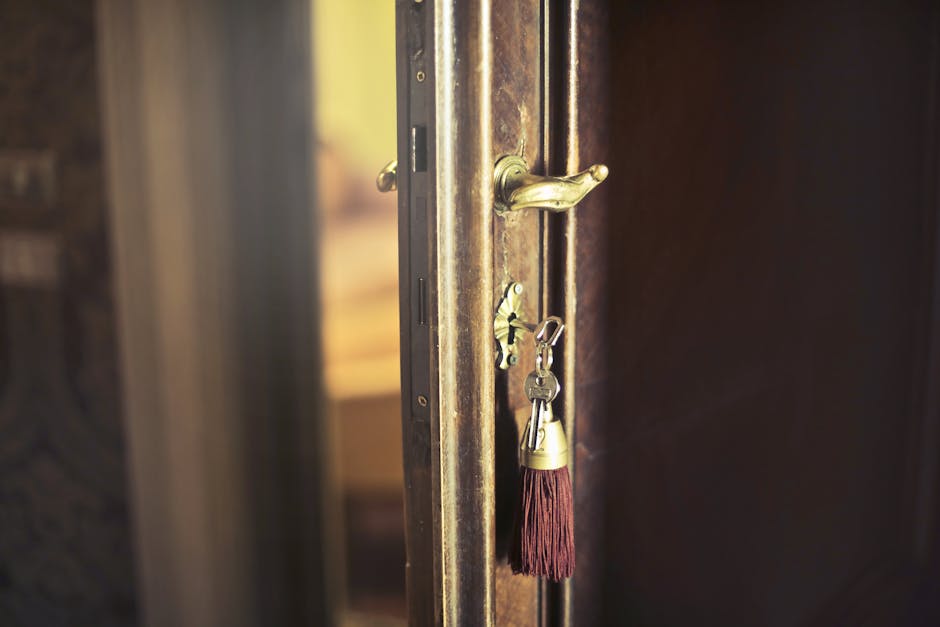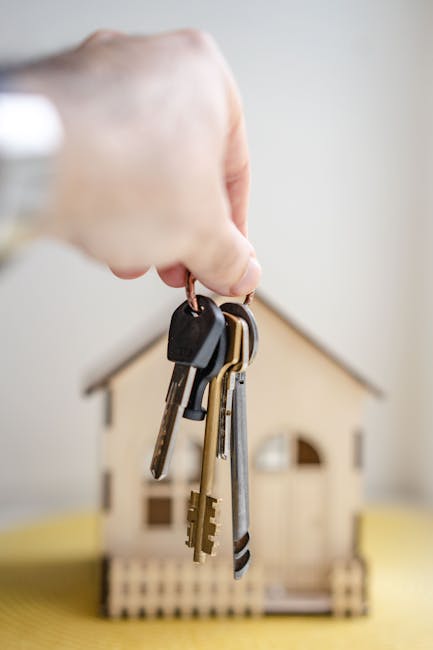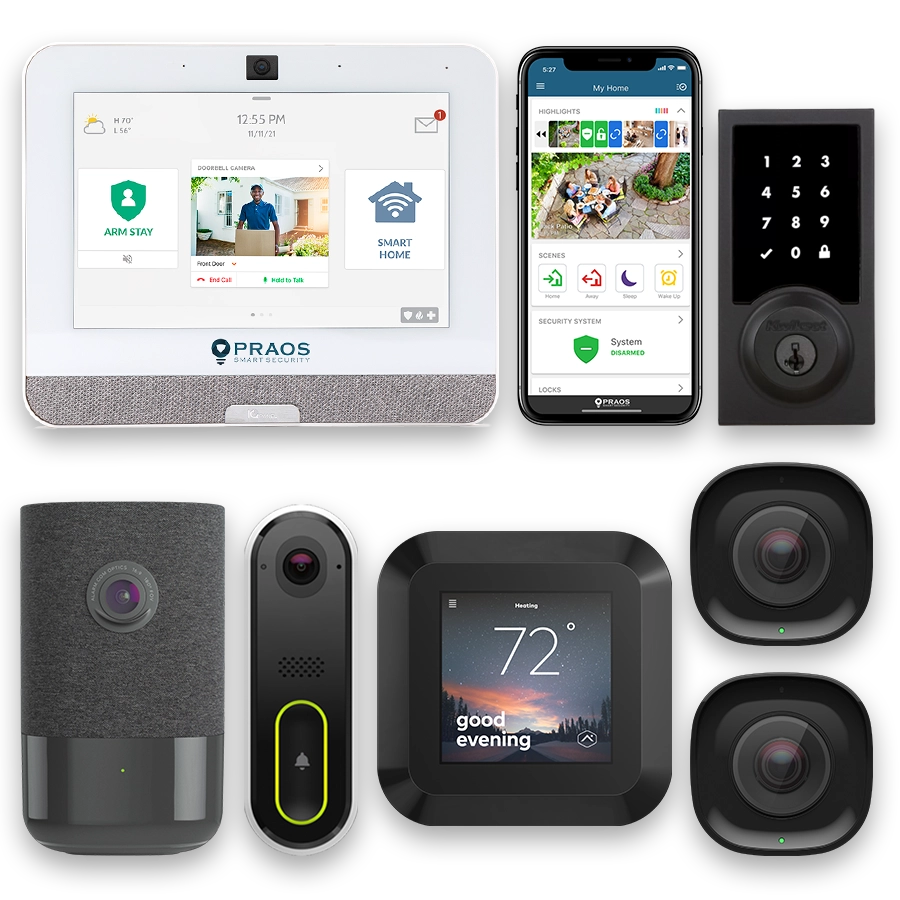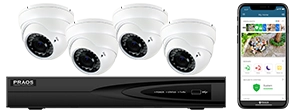- Introduction to Home Security in Richmond
- Understanding Common Security Threats in Richmond
- Choosing the Right Alarm Systems for Richmond Homes
- Effective Alarm Installation Strategies
- Best Practices for Maintaining and Upgrading Alarm Systems
- Legal and Regulatory Considerations for Home Security in Richmond
- Case Studies and Success Stories in Alarm Optimization
Introduction to Home Security in Richmond
Home security has become an increasingly important concern for residents in Richmond. As urban areas grow and evolve, so do the complexities and challenges related to ensuring the safety and security of one’s property. Richmond, with its diverse neighborhoods and varying crime rates, presents a unique landscape for homeowners looking to protect their premises.
The concept of home security encompasses various strategies and technologies designed to deter, detect, and respond to criminal activities. Alarm systems, in particular, play a crucial role in this ecosystem. These systems are designed to alert homeowners and authorities of potential breaches, thereby reducing the risk of property loss and enhancing the overall sense of safety.
Richmond’s home security requirements are influenced by several factors, including its geographical location, socio-economic dynamics, and crime statistics. According to recent data from the Richmond Police Department, the city has seen fluctuations in crime rates, with certain areas experiencing higher incidents of burglaries and property-related crimes. This data underscores the need for robust and reliable alarm systems tailored to the specific needs of Richmond’s residents.
An effective home security strategy in Richmond must address both the prevention and response aspects of potential threats. This involves not only installing advanced alarm systems but also adopting complementary security measures such as high-quality locks, surveillance cameras, and adequate lighting. Integrating these elements can create a comprehensive security network that offers multiple layers of protection.
As technology continues to advance, the options available for home security systems have expanded significantly. Modern alarm systems offer features such as real-time alerts, remote monitoring, and seamless integration with smart home devices. These innovations provide homeowners with greater control and flexibility in managing their security, making it easier to adapt to evolving threats and changing circumstances.
In summary, ensuring home security in Richmond requires a proactive and informed approach. By understanding the local context and leveraging advanced alarm system technologies, residents can significantly enhance the safety and protection of their homes. This chapter aims to provide a foundational understanding of the importance of home security in Richmond, setting the stage for a deeper exploration of effective alarm installation strategies and best practices in the subsequent sections.
Understanding Common Security Threats in Richmond
Ensuring the security of your Richmond home involves understanding the specific threats that are prevalent in the area. Richmond, like any other city, faces its unique set of challenges when it comes to home security. By recognizing these threats, homeowners can better prepare and select appropriate security measures to keep their families and properties safe.
One of the most common security threats in Richmond is burglary. According to the Richmond Police Department, there were over 1,000 reported cases of burglary in recent years. These incidents highlight the importance of having a robust alarm system in place, such as the ones offered by Praos. Praos, with its award-winning service and local expertise, offers monitored systems that include free equipment and installation for new customers. This ensures that even those new to home security can start with a reliable setup without significant initial investment.
Another prevalent threat is property damage due to vandalism. While not as frequent as burglary, incidents of vandalism can lead to significant losses. With Praos’ comprehensive home security solutions, residents can benefit from surveillance and automation features that allow real-time monitoring and alerts. This proactive approach helps deter potential vandals and allows for quick response times if incidents do occur.
In recent years, there has also been an increase in package thefts, a common issue in urban and suburban areas. Praos’ connected home experience features a unified app that integrates security, automation, and surveillance, providing homeowners with the tools needed to monitor and manage deliveries effectively.
The following table provides a snapshot of common security threats in Richmond:
| Security Threat | Description |
|---|---|
| Burglary | Unauthorized entry with the intent to commit theft or another crime. |
| Vandalism | Intentional destruction or damage to property. |
| Package Theft | The stealing of delivered packages from porches or doorsteps. |
Praos provides tailored solutions to address these specific threats, ensuring every customer receives a system optimized for their individual needs and budget. With rates starting at just $19.95 per month, homeowners in Richmond can enjoy peace of mind knowing that their homes are monitored and protected by a leading local security provider.
Choosing the Right Alarm Systems for Richmond Homes
Choosing the right alarm system for your home in Richmond require an understanding of various factors that align with local security needs and available technologies. The following points will help homeowners make informed decisions based on real data and tried-and-tested practices.
1. Identify Your Security Needs: Richmond homes exhibit different security requirements based on location, design, and specific threats. Theft, property crime, and intrusion are primary concerns. Begin by conducting a thorough assessment of your home’s vulnerabilities.
2. Types of Alarm Systems:
- Monitored Systems: Directly connected to a monitoring center that contacts law enforcement if triggered. These systems provide high security but come with subscription fees.
- Unmonitored Systems: Emit an alarm to deter intruders when triggered. They rely on neighbors or occupants to notify authorities.
- Wireless Systems: Easier to install and less invasive than wired systems. Ideal for existing structures.
- Wired Systems: Often used in new constructions where running cables is feasible. These systems are generally more reliable and less susceptible to interference.
3. Key Features to Consider:
- Remote Access: Allows homeowners to monitor and control their alarm systems via smartphones or other devices.
- Camera Integration: Combining surveillance cameras with alarm systems can provide visual confirmation of suspicious activities.
- Environmental Sensors: Includes smoke, carbon monoxide, and flood detection, offering comprehensive safety beyond intrusion.
- Motion Detectors: Essential for identifying unusual movements within the premises.
4. Comparing Alarm System Providers:
It’s crucial to compare alarm system providers based on their offerings, customer service, and reliability. Below is a table summarizing some well-known providers and their features:
| Provider | Key Features |
|---|---|
| ADT | 24/7 professional monitoring, home automation, multiple sensor options |
| Vivint | Smart home integration, advanced security cameras, professional installation |
| Frontpoint | DIY installation, customizable packages, smartphone control |
| SimpliSafe | Flexible pricing, no contracts, easy installation |
5. Budget Considerations: Choose a system that fits your budget while ensuring it covers essential features. Remember that the initial cost includes equipment, installation, and potential subscription services. Study the pricing models of different providers and identify any hidden costs.
6. Integration with Existing Systems: Ensure that the new alarm system can integrate with other home security components you have, like existing cameras, lights, and home automation systems. Compatibility is essential for seamless operation and ease of use.
By considering these factors, Richmond homeowners can effectively choose an alarm system that enhances their security, providing peace of mind and protection against common threats.
Effective Alarm Installation Strategies
When it comes to optimizing home security in Richmond, effective alarm installation is a crucial component. Proper installation not only ensures the functionality of the system but also maximizes security. Here are several strategies for effective alarm installation:
1. Strategic Placement of Sensors and Detectors:
Place motion sensors in high-traffic areas where intruders are most likely to pass through, such as hallways, staircases, and main entrances. Door and window sensors should be installed on all accessible points of entry. According to the Federal Bureau of Investigation (FBI) burglary data, 34% of burglars enter through the front door, while 23% use first-floor windows.
2. Optimal Height and Angle:
Install motion detectors at a height of 6 to 8 feet to maximize their coverage area and reduce the likelihood of evasion. Ensure that the angle of sensors covers the intended area without being obstructed by furniture or decor.
3. Avoiding False Alarms:
Avoid placing motion sensors near heat sources or in direct sunlight, as these can trigger false alarms. Additionally, use pet-immune motion detectors if you have pets, which can differentiate between human and animal movements.
4. Secure Wiring:
For wired alarm systems, ensure that all wiring is concealed and protected to prevent tampering. Encasing wires within walls or using conduits can hinder an intruder’s ability to disable the system.
5. Regular Testing:
Regularly test the alarm system to ensure all components are working correctly. The National Fire Protection Association (NFPA) recommends monthly testing of smoke detectors, which can be integrated into comprehensive security systems.
6. Integrating with Other Security Measures:
Combine alarm systems with other security measures such as surveillance cameras and smart locks. According to the Electronic Security Association (ESA), homes with integrated security systems are three times less likely to be burglarized.
7. Professional Installation:
Consider professional installation services to ensure that the alarm system is correctly, and efficiently installed. Professionals have the expertise to optimize sensor placement, reduce the risk of false alarms, and integrate the system with other security measures.
Implementing these strategies can significantly enhance the effectiveness of alarm installations in Richmond homes, providing a robust defense against potential intrusions.
Best Practices for Maintaining and Upgrading Alarm Systems
Ensuring that your home security system remains effective over time requires regular maintenance and timely upgrades. This chapter provides a comprehensive guide to best practices for maintaining and upgrading alarm systems to optimize home security in Richmond.
Regular Maintenance
Regular maintenance of alarm systems helps to identify potential issues before they turn into significant problems. Here are some essential maintenance tasks that should be routinely performed:
- Test the Alarm System Weekly: Conduct weekly tests to ensure that all sensors, detectors, and control panels are functioning correctly. Most modern systems have a “test mode” that allows homeowners to perform these checks without triggering false alarms.
- Inspect Batteries: Batteries in wireless sensors and control panels should be checked at least once a month. Replace batteries promptly to ensure constant protection.
- Clean Sensors and Cameras: Dust and debris can interfere with the function of motion sensors and cameras. Use a soft cloth to clean these components every few months.
- Software Updates: Alarm systems with integrated software should be updated regularly to protect against the latest security threats and to ensure optimal performance.
Upgrading Alarm Systems
In addition to maintaining existing components, periodically upgrading alarm systems can enhance the effectiveness of home security. Consider the following upgrade strategies:
- Upgrade to Smart Alarm Systems: Modern smart alarm systems offer remote monitoring, instant notifications, and integration with other smart home devices. This adds convenience and enhances security.
- Enhance Sensor Coverage: Evaluate the current sensor placement and add more sensors if there are areas of the home that are not adequately covered.
- Install High-Definition Cameras: Upgrading to high-definition security cameras improves video quality, which can be crucial for identifying intruders and providing evidence.
- Incorporate Advanced Detection Technologies: Consider adding advanced sensors, such as glass break detectors and environmental sensors (e.g., smoke and carbon monoxide detectors), to provide a comprehensive security solution.
Professional Inspections
Periodic professional inspections can uncover issues that may not be obvious during routine checks. Security professionals can provide the following services:
- System Diagnostics: Comprehensive diagnostics to identify and fix any issues with wiring, sensors, and control panels.
- Performance Assessment: Evaluation of the alarm system’s overall performance, including response times and alarm accuracy.
- Recommendations for Improvements: Professional recommendations for system upgrades and enhancements based on the latest industry standards and technologies.
Maintenance Schedule
| Task | Frequency |
|---|---|
| Test Alarm System | Weekly |
| Inspect Batteries | Monthly |
| Clean Sensors and Cameras | Every 3 Months |
| Software Updates | As Necessary |
| Professional Inspection | Annually |
By following these best practices for maintaining and upgrading alarm systems, homeowners in Richmond can enhance the longevity and effectiveness of their home security systems. Regular maintenance and timely upgrades are crucial in adapting to evolving security threats and ensuring peace of mind.
Legal and Regulatory Considerations for Home Security in Richmond
Understanding the legal and regulatory landscape is crucial for optimizing home security in Richmond. Homeowners must ensure that their alarm systems comply with relevant laws and regulations to avoid penalties and ensure optimal functionality.
Local Ordinances and Permits
Richmond has specific ordinances regarding the installation and maintenance of home alarm systems. The City of Richmond requires homeowners to obtain an alarm permit. This permit ensures that local authorities are aware of the alarm system, which can expedite emergency response times.
According to the Richmond Police Department, residents must file an application and typically pay a fee for the alarm permit. It’s important to renew the permit annually to stay compliant with local regulations.
False Alarms Management
The City of Richmond has strict policies to manage false alarms. False alarms can strain local law enforcement resources, leading to slower response times for actual emergencies. The Richmond False Alarm Reduction Program outlines penalties for repeated false alarms, which may include fines. As a homeowner, it’s important to regularly maintain and test your alarm system to minimize false activations.
False Alarm Penalties:
- First False Alarm: Warning
- Second False Alarm: Small Fine
- Subsequent False Alarms: Increasingly higher fines
Regulations on Alarm System Features
The City of Richmond and the broader state regulations may dictate certain features that must be present in residential alarm systems. For instance, audible alarms are often required to automatically reset after a specific duration to minimize noise disturbance.
Privacy and Surveillance Laws
Installing security cameras as part of an alarm system involves additional legal considerations. Virginia law specifies that homeowners can install surveillance cameras on their property, but they must avoid infringing on neighbors’ privacy. Recording audio without consent can also be a legal issue, so it is recommended to consult with a legal expert when integrating these features into your system.
Data Protection Regulations
Modern alarm systems often include digital and networked components. The Virginia Consumer Data Protection Act (VCDPA) imposes obligations on data collectors to protect and secure personal information. Homeowners should ensure that any data collected through their security systems is handled in compliance with these regulations to avoid potential legal issues.
By understanding and adhering to these legal and regulatory considerations, Richmond homeowners can create an effective and compliant home security setup. Regular maintenance and staying informed about changes in local laws will help ensure that their alarm systems continue to provide optimal security.
Case Studies and Success Stories in Alarm Optimization
For a well-rounded understanding of home security optimization, it is beneficial to look at real-world applications and success stories. Highlighting how individuals and communities achieve effective home security helps to underline key strategies and practices.
Community-Based Security Enhancements
Richmond’s neighborhoods have shown significant improvements in security through community-based initiatives. By organizing neighborhood watch programs and sharing information about security threats and preventative measures, communities create a collaborative approach to crime prevention.
One prominent example is the establishment of community-driven alarm notification systems. These systems connect residents, allowing them to alert each other of suspicious activities in real-time. This approach has been particularly effective in reducing the response time to potential security incidents.
Technological Integration
The integration of advanced technologies into home security systems has provided residents with more reliable and effective protection. Smart alarm systems, which include features such as remote monitoring, real-time alerts, and integration with other smart devices, have become increasingly popular.
Data reveals substantial growth in the adoption of smart home security systems. According to a report by the Consumer Technology Association, the smart home security market is projected to reach $9.7 billion by 2025, demonstrating the increasing reliance on technology for enhancing home security.
| Technology | Functionality |
|---|---|
| Smart Cameras | Provide real-time video surveillance and alerts |
| Smart Locks | Allow remote access and monitoring of home entry points |
| Motion Sensors | Detect unusual movements and trigger alarms |
Individual Success Stories
Homeowners in Richmond have also shared numerous success stories of thwarting potential break-ins through the strategic installation of alarm systems. For instance, using a combination of visible deterrents, such as security cameras and alarm system signage, has been reported to reduce the likelihood of a home being targeted.
Residents have also found success in layering their security measures, combining traditional alarm systems with modern smart technologies. This multi-faceted approach not only deters intruders but also provides multiple fail-safes in case one system component fails.
Continual Improvement and Adaptation
Consistent with reports from the National Council for Home Safety and Security, homeowners who regularly maintain and upgrade their security systems experience fewer security breaches. Regular system checks and updates ensure that all components function correctly, and take advantage of the latest security advancements.
It is evident that through community efforts, technological integration, and continual improvement, Richmond homes can significantly optimize their security. By studying and applying these real-world examples, residents can develop a robust security strategy tailored to their unique needs.






